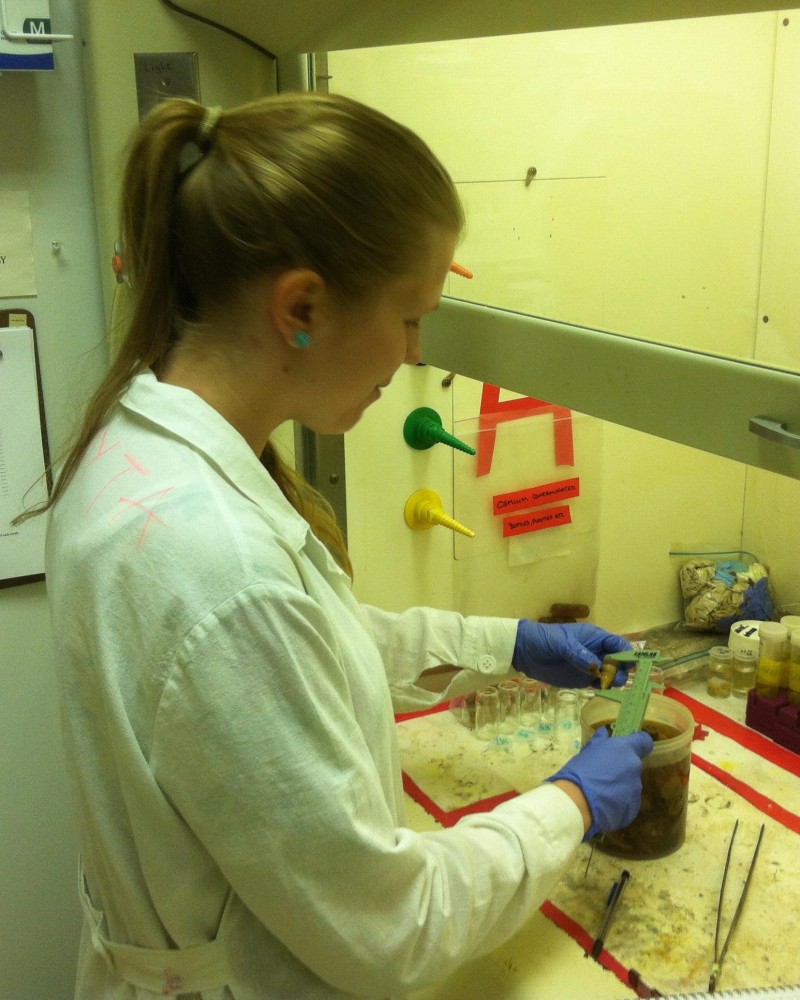Reproduction of cold-water corals
Edyta Glogowska
University of Southampton, Southampton, UK

Darling Marine Center in Walpole, Maine, USA
Darling Marine Center in Walpole, Maine, USA was a perfect place for completing an independent scientific research project required to achieve my Master degree. I am immensely grateful to the Challenger Society for a travel award that I was granted, which enabled me a trip to the USA.
I got a chance to collaborate with an expert in deep-sea biology and invertebrate reproduction - Dr Rhian Waller. I have been working in her laboratory for two months, where I could focus on my project about reproduction of cold-water corals. I gained extensive knowledge about various histological techniques, which in turn helped me to improve methods I needed to examine three stony coral species from Antarctica, Mediterranean Sea and Florida. Moreover, I had the opportunity to broaden my knowledge about cold-water coral ecosystem, which is essential to thoroughly analyse these organisms. All these information will help me to write my Master thesis, which hopefully will be published in a scientific journal soon.
Additionally, the grant gave me an unrepeatable opportunity to meet other more experienced marine scientists and researchers who willingly shared their opinion about different aspects of the marine environment with me. Their advice regarding scientific community and a marine biologists career was very helpful and I am convinced that all these information will be tremendously useful in my future career.
The trip to Darling Marine Center has provided me an unforgettable experience. I am glad and grateful that the Challenger Society supported me in this unique adventure.
Latest News
Royal Society Publishing Photography Competition 2025
Please see a message from the Royal Society below:
We are delighted to announce that the 2025 Competition is now open for entries until 15 August for a chance to win £1000! The competition celebrates the power of photography in conveying the wonder of science happening all around us and photographs can be submitted in the categories of: Astronomy, Behaviour, Earth Science and Climatology, Ecology and Environmental Science, and Microimaging.
The competition is free to enter and open to anyone studying or working in science at graduate level or above. Category winners will receive a one-year membership to the Royal Photographic Society and the overall winner will receive a grand prize of £1,000. Find out more: https://bit.ly/RSPphotocomp
October 2025 MEDIN Workshop: Marine Data Management, Governance and the MEDIN toolset
The Marine Environmental Data and Information Network (MEDIN) are pleased to announce that registration is now open for the next occurrence of our popular free online training workshop: ‘Marine Data Management, Governance and the MEDIN toolset’ on the 13th – 17th October 2025 on OceanTeacher Global Academy.
Marine Data Management, Governance and the MEDIN toolset
The Marine Environmental Data and Information Network (MEDIN) and OceanWise are delighted to invite you to attend our popular free online training workshop: ‘Marine Data Management, Governance and the MEDIN toolset’ on the 19th – 23rd of May 2025.
